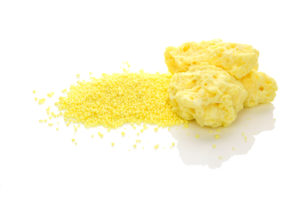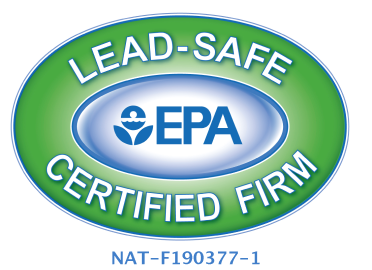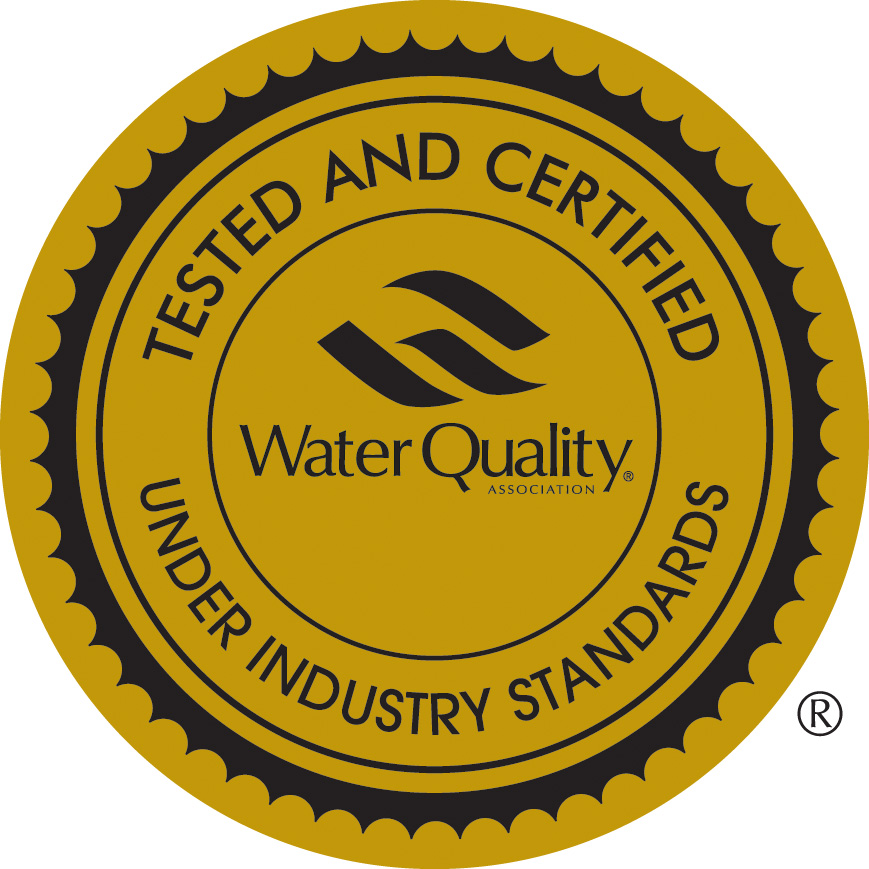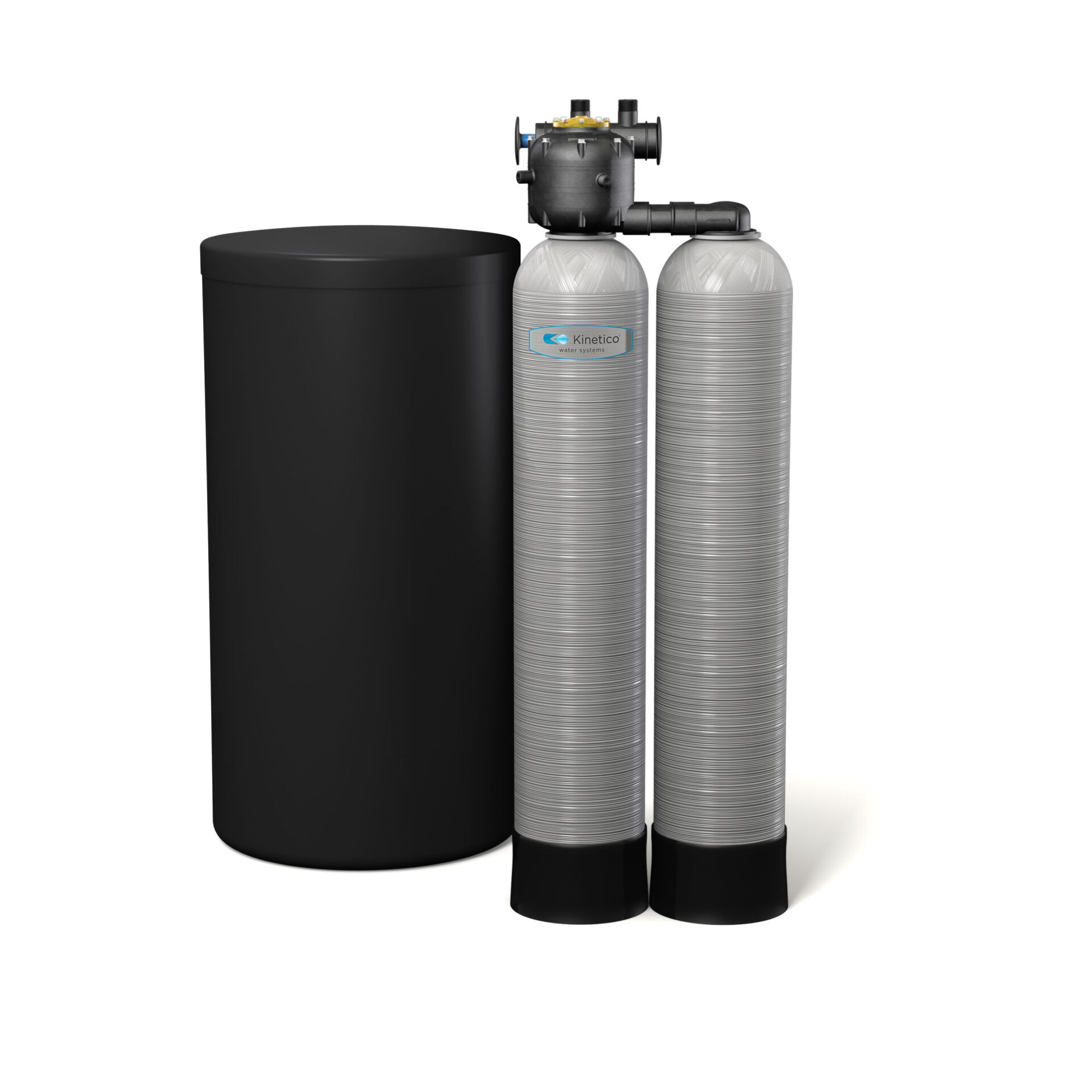Sulfur Water Filtration Systems
Better Water With A Sulfur Water Filter
Our whole house sulfur filtration systems are the chemical free solution to remove the rotten egg smell from your well water. To ensure the highest quality, consider integrating a water filtration system into your home.
Most systems use chemicals like chlorine to destroy sulfur (rotten egg smell) from the water, which leads to expensive maintenance over the lifetime of that system. Like adding bleach to the system every couple of months, having to replace chemical feeder pumps, and replacing the media inside of the system because the chlorine destroys it over time.
Our sulfur filtration systems just use oxygen and a special media to destroy the rotten egg smell in your water. Making it virtually maintenance free, and we both know the less maintenance the better.
The Benefits Of A Whole House Sulfur Filtration System:
- The sulfur system removes the sulfur to produce clean, odor-free water with NO chemicals
- You don't have to go to work or school smelling like rotten eggs
- Protect your plumbing system from black sludge caused by sulfur water
- Eliminates the need for traditional chlorine injecting treatment systems
- Battery backup so you don't have to reset any settings when the power goes out
- Patented Vortech technology that extends the life and performance of the media bed
- Only one moving part, so it's virtually bulletproof.
The Truth Behind Sulfur-Smelling Water: Is It Harmful?
Smell is one of those natural warnings – pain is another – that alert us to the fact that something is amiss. More often than not, if something smells bad, we shouldn’t touch it, let alone consume it. But what if the odor is in the household water? What if the water smells of sulfur?
The good news is that the smell of sulfur in water doesn’t mean it is poisonous or harmful. But it is unpleasant, there’s no denying that. If you have that terrible stench of rotten eggs, what you are smelling is hydrogen sulfide, and that is usually produced by a process going on between the natural sulfate in the water and bacteria that eat it. Their actions produce hydrogen sulfide, which is sulfate’s smelly relative.
For a more comprehensive solution, explore our whole water systems that address various water quality issues.
So, there is the explanation. Does that make it okay? It does not. Are you going to teach this to your family and fellow residents, and make sure your guests know why their lovely cup of coffee smells terrible and the shower water gives them the idea it is doing more harm than good?
How To Remove Sulfur Smell From Well Water?
There is only one thing to do if you’ve got sulfur-smelling water: get rid of it. Often people do this with chlorine, which of course has its own unwanted odor and cancer causing byproducts. But at Aqua Clear we use beautiful, natural oxygen to give you beautiful, natural water.
Additionally, pairing it with a whole house water softener can enhance the overall quality and softness of your water supply.
Sulfur is a naturally occurring substance and in its normal crystalline state, it is tasteless, colorless and not harmful. The problem occurs when iron and sulfur bacteria that are present in ground water change sulfates into hydrogen sulfide (H2S) gas, which has an unpleasant smell similar to rotten eggs. H2S in household water is normally at very low concentrations and is not a health risk. However, it does smell unpleasant and, in gaseous form, can be flammable and poisonous. When dissolved in water, H2S can corrode metals such as iron, steel, brass and copper, can darken silver and cause discoloration in copper and brass. It is, therefore, a problem that needs to be dealt with. Well water concentrations are normally 1-5 parts per million (PPM) compared to the 100 PPM levels that can cause sickness and death. However, even limited exposure at the lower levels can cause irritation of the eyes and respiratory system while prolonged exposure can cause eye inflammation, insomnia, headaches, tiredness and digestive disturbances. Higher concentrations can result in more severe conditions such as nausea, vomiting, breathing problems and worse respiratory and eye irritation.
Identifying Sulfur in Well Water
H2S is often found in wells, especially those drilled in sandstone or shale, or near oil-fields, coal or peat, and can also enter surface water via springs. Before dealing with it, however, you need to be sure of the source. If your hot water has the distinctive rotten eggs smell but your cold water does not, the problem is probably with the water heater. This may have an anode rod that reacts with the sulfate to produce H2S gas. Replacing the anode rod with an aluminum version could fix the problem. If your cold water smells, then the source of the water — the well — is the problem. A rotten egg smell indicates sulfur while other smells are due to various different contaminants such as manganese or iron. You should conduct a test to analyze the content of the water, so you know how to treat it correctly. We can run water into a bucket as a sample and test it for pH levels, manganese, iron and hardness as well as sulfate and hydrogen sulfide. When the water causes red or black staining, this is an indication of iron or manganese in the water. This will also need a well sulfur water filtration systems designed to remove the iron and manganese. So, now that we have covered how to identify sulfur the next part of our blog will focus on how to remove hydrogen sulfide from well water.Sulfur Removal From Water
If the water smells of rotten eggs, well water purification will depend on the extent of the problem and if there are other contaminants in your well water:- For relatively low levels of sulfur, we can use a whole house water filter that has no chemicals added and no filters to change. The house water filter lasts for several years and peroxide can be injected to clean the carbon, so it lasts even longer.
- When the sulfur gives out extreme odors, it’s best to look at installing a whole house reverse osmosis system. This will not only stop the extreme rotten egg smell but also give you bottled water quality to drink at your kitchen sink. You will want to get the water professionally tested to see what your levels are at.
- If there’s rust staining due to iron or manganese in the water as well as sulfur, we can design one hydrogen sulfide removal system and another well water filtration system designed for iron and manganese.
How to Remove that Sulfur Smell From Well Water
So, you've noticed that your well water has a funky smell - likely similar to rotten eggs. This indicates that your well water has been contaminated with sulfur, which, if left in the long term, can cause a host of harmful health effects. But don't panic - by following three simple steps, you can remove the sulfur smell from your well water. The first step is to stop using that water - after all, you don't want to risk your health while getting the water treated. The next step is to get your water tested. Most water treatment specialists can arrange this for you; alternatively, you might want to get it tested in a lab yourself. The water tests should then indicate what type of treatment is appropriate for the extent of contamination in your water and how to remove the sulfur smell from well water. The third step is to then hire a water treatment specialist to conduct the necessary steps to restore your water to pure quality. They'll be able to guide you through the appropriate steps to find the most cost-effective and convenient solution for removing the sulfur from your well water or determine if a rust filter for well water is required.Sulfur in well water doesn't have to be a nightmare.
A water treatment specialist such as Aqua Clear Water Systems will be able to guide you to the most appropriate option when it comes to the removal of sulfur in well water. In severe cases, a mixture of a sulfur water filter and chemical treatments will be able to restore your water to the healthy, tasty standard that you expect.Questions on How To Filter Well Water? Get in touch!
If you have any further questions about how to get rid of sulfur in water wells, give us a call, send us an email at [email protected], or check out our FAQs below.Will a filtration system just remove sulfur smell from well water?
Many well water purification system have the advantage of removing other contaminants besides sulfur, such as lead, viruses, bacteria, and so on. It's essential to consider other potential water quality issues and select a filtration system that meets your overall water treatment requirements when working out how to filter well water.What maintenance is involved in maintaining a sulfur filtration system?
Maintenance requirements vary depending on the type of water filters for wells. Some may require periodic replacement of filters for sulfur water, while others require certain chemicals to be replenished. Regular system inspections and water quality testing are also recommended to ensure continued effectiveness.Say Goodbye to Sulfur Smells
Get Your Free Estimate Now.
We’re Trusted By Some Of Most
Iconic Companies In The USA













10,000+ East & Middle Tennessee Clients Love Our
Whole House Water Filtration Systems… And
96% Would Buy Again If They Ever Move!

READY TO GET STARTED?
Claim Your FREE At Home Water Test And Our
Qualified Water Technicians Will Show You
How You Can Save Thousands And Improve
Your Health With Soft, Pure Water!

Don’t risk your family’s health! Book a free water test with our qualified technicians to find out what harmful impurities are causing the most damage in your home. Plus, get a customized recommendation for the perfect system to solve your water concerns!

We Service All of East & Middle Tennessee
Aqua Clear Water Systems has been serving the communities in East & Middle Tennessee for almost 2 decades


















